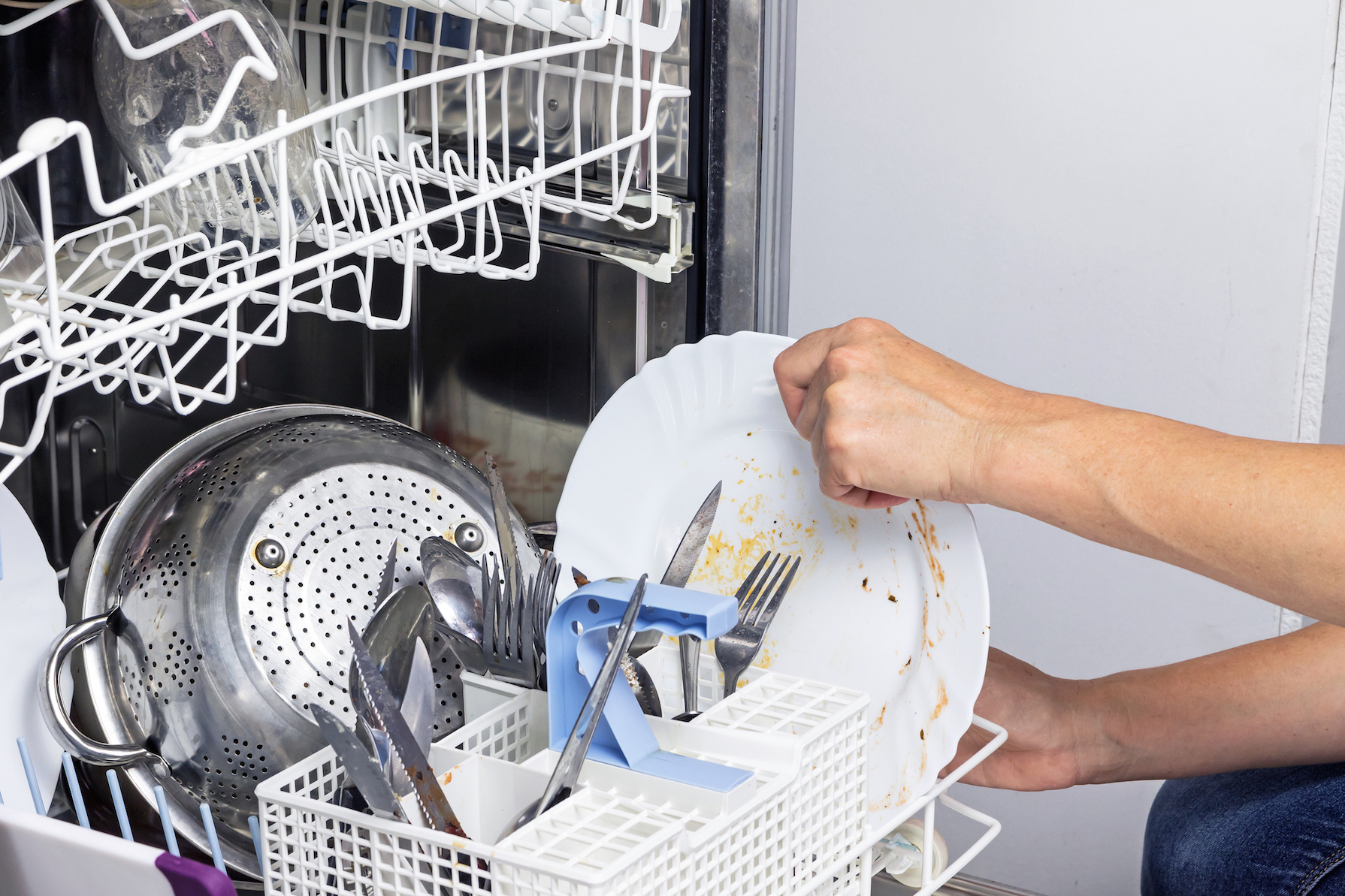Should you rinse dishes before the dishwasher? This is one of the hotly debated issues among many homeowners. While many are strong believers in pre-rinsing plates before dipping into the dishwasher, some think you are not allowing the dishwasher to carry out its job when you pre-rinse.
If you are among the first set of homeowners who are raised to believe you have to rinse the plates before putting them in the dishwasher, sorry to burst your bubbles. You have been doing it all wrong! And No, there is absolutely no reason to pre-rinse your dear plates and utensils before washing. Here are expert reasons to stop you from pre-rinsing your dishes before loading them in the dishwasher ever again. Keep reading!
Pre-washing is a waste of time, water, and energy
Put simply, when you rinse dishes before the dishwasher, you are wasting time, water, and energy. For one, the average dishwasher is more water-friendly than traditional handwashing. Plus, it is energy efficient. Using the energy star dishwasher saves you 5,000 gallons of water, hours of labor, and a reduction in utility bills.
Then, if you have to run a full blast of water on your dishes in the name of rinsing, this doesn’t justify any claim about the dishwasher being water and more energy-efficient than hand washing. Coupled with the fact that time and energy are going into the rinsing. Why not let your dishwasher do the heavy lifting, while you focus on other important things.
Pre rinsing is only doing more harm than good to your dishwasher
When you pre-rinse, you may be doing more than good to the dishwasher. This is because dishwashers work with sensors that detect how dirty your plates and will run a thorough cleaning cycle to get them cleaned. If however, you rinse the dishes first before loading, the sensor is being fooled into thinking your plates don’t need much cleaning as it won’t pick up any food particles. Hence, the dishwasher will run less efficiently with less cycle and likely leave some food residue behind. That’s the last thing you want.
This shows that the extra effort put into cleaning does not get the job than using the innovative dishwasher alone.
Why bother, let the dishwasher do its job
The dishwasher is made for just that- to wash the dishes. And the good thing is the detergent is designed to cling to the food articles to the dishes cleaned effectively. Without any particles on the food, your detergent just washes away without any gunk to hold onto. Besides, it can cause damage to your dishware overtime.
However, this doesn’t mean you should toss a whole bunch of leftover pancakes on the plates into the dishwasher. Your dishwasher is not your garbage disposal if you don’t want to end up with a clogged dishwasher.
Therefore, scrap off any gunk of food or leftover from your plates and put it into the dishwasher without rinsing. However, to prevent any particles from clogging up the drain, clean up the dishwasher filter at least once a month. This is quite simple, all you need to do is to remove the filter and clean it with hot soapy water. This is important for the proper functioning of the dishwasher and to prevent grime buildup.
Do you need to rinse dishes before the dishwasher at any point in time?
Just like anything, there are always exceptions to the rule. If you have left your dishes for hours or a day before washing, and they are coated with stubborn carbs and protein such as eggs or oatmeal, then, a pre-rinse makes sense. Moreover, it is only reasonable to also soak up a casserole with burnt food particles for a while before loading it into the dishwasher.
Other than that, it is best to save yourself the elbow grease, water and energy by leaving the fate of your plate in the hand of the dishwasher to handle. They do the best job. Trust me!


